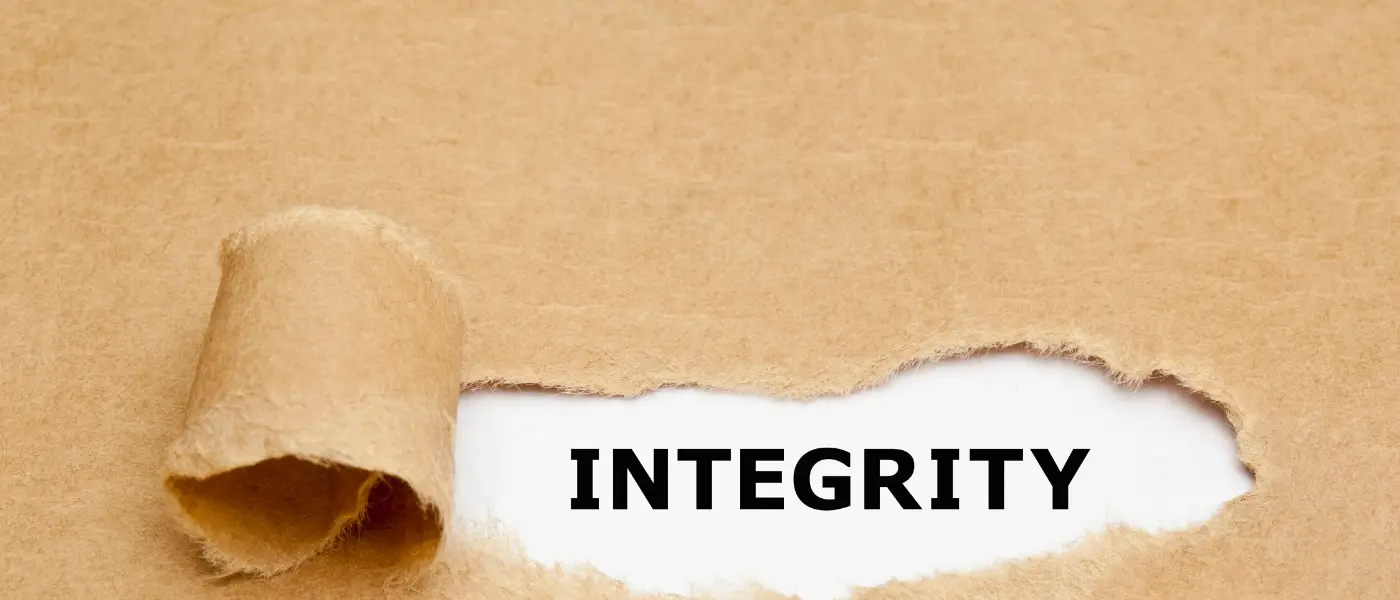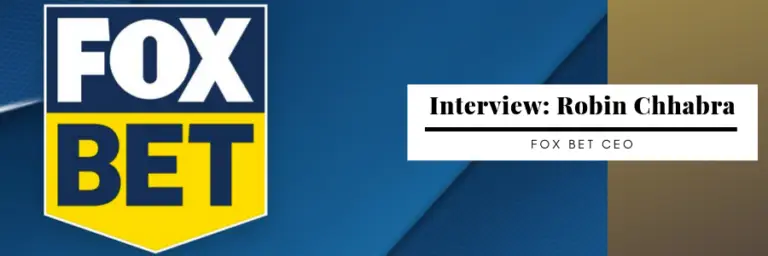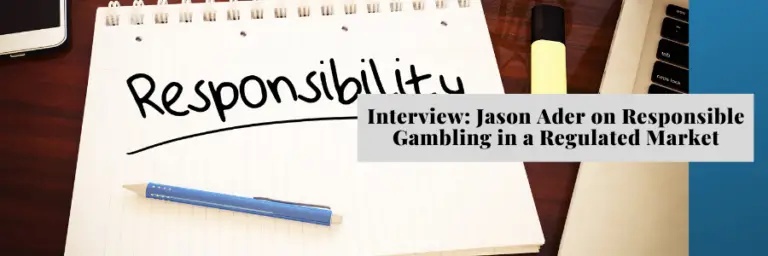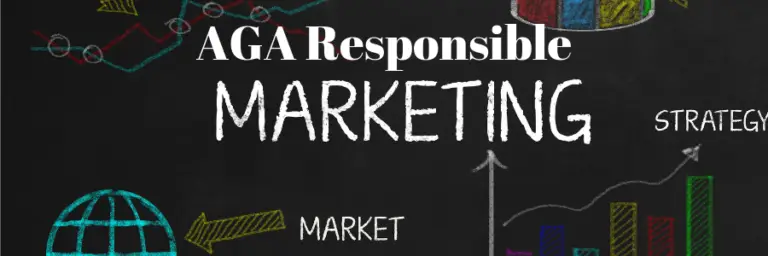Discussing Sports Betting Integrity With Matt Holt

This column is the first of a two-part interview with Matt Holt, founder, and CEO of U.S. Integrity.
In this installment, we discuss U.S. Integrity and its role in the growing U.S. sports betting industry. In Part 2, Holt discusses the new sports gambling education course the company has established in conjunction with Ohio University.
Launched in 2018, U.S. Integrity is a sports betting integrity company that uses a three-pronged approach that involves: intelligence and monitoring, investigation, and education.
According to its homepage, U.S. Integrity provides “customized sports-integrity solutions for NCAA conferences, universities, professional leagues, and individual teams.” The company also works closely with regulators and operators, providing fraud-detection tools.
Matt Holt and the Founding of U.S. Integrity
Steve Ruddock: Could you provide our readers with a bit of background on yourself.
Matt Holt: I’m the former COO at Cantor Gaming, which for a long time, was the largest licensed sports betting operator in Nevada and thus the largest licensed sports betting operation in the United States. I was also the chief operating officer of their sister company C.G. Analytics, which was the game integrity, fraud prevention, and odds creation branch of Cantor Gaming.
We were a licensed information service provider, and we did some pretty amazing stuff. We launched the first-ever regulated mobile sports betting app in the country. But one of the things I realized on the C.G. Analytics side is that we were working with the NCAA, the NBA, the NFL, the NHL, the Pac 12, the Big 12, all of these major leagues on game integrity and fraud prevention, and it was really rudimentary in terms of how we did it.
I understood that at some point, all of these leagues, teams, universities, regulators, and operators are going to need truly independent, unbiased data and technology-driven, game integrity, fraud prevention, and compliance-related services.
So in April 2018, I left Cantor, and we started U.S. Integrity because, at the time, there weren’t any non-conflicted integrity providers.
You had these data providers out there like Sports Radar and BetGenius, who are basically data providers. These firms create & distribute odds, manage risk, and purchase exclusive data rights from leagues. Their core focus is not integrity. Sports Radar has this massive data distribution deal with NBA, which includes integrity, but the NBA turns around and pays U.S. Integrity for services. The reason being, we can provide unique sets of data that we receive from operators because we don’t have the same conflicts. Also, because integrity is our core focus, we spend all our time ensuring we build the most robust and expansive monitoring services and products.
We always tell regulators and everyone we work with that you would never let an arresting officer also be a judge in the same case in the United States. It’s just too big of a conflict of interest. Too obvious of a conflict of interest.
At the same time, you can’t let your integrity provider also be your oddsmaker.
The Role of U.S. Integrity in the Legal Sports Betting Industry
Steve Ruddock: Can you explain the services U.S. Integrity offers?
Matt Holt: So basically, what we do is build customizable dashboards. Think of the Bloomberg for sports betting. These are intuitive for the customers, customized to each different customer’s specifications because leagues, teams, and universities need very different things than regulators, who need very different things than operators. And we pull in real betting data. Every operator that we work with gives us all of their bets on an anonymized basis.
We monitor the entire wagering market, looking for abnormalities within the wagering market, correlated with abnormalities within the event itself.
We do a lot of player monitoring and any type of, you know, potential match-fixing potential game manipulation with the amount of player props and available different wagering types, the risks, and vulnerabilities for point shaving.
And we do robust officiating monitoring, including establishing career behavioral patterns for referees. We can find out what their normal is because each of them has their own biases – the home teams, away teams, favorites, underdogs, high scoring, low scoring, lots of penalties, fewer penalties, et cetera.
We also closely track the misuse of insider information, which is something we catch trainers and equipment managers and coaches and players all the time. One of the reasons that so many of the teams and universities and conferences are concerned with it is that not only does it invite nefarious people around your program, which can lead to other issues, but it can also be a HIPAA issue when you’re disclosing people’s private medical information without their consent.
We do a lot of player and referee safety issues too.
We had a student-athlete in one college basketball game where they were a 16-point underdog down 15, with just a few seconds left. The backup point guard gets fouled, misses a pair of free throws and gets a post on Instagram that says, ‘I know you missed those free throws on purpose. I hope you die. If I see you, I’m going to slit your throat.’
So obviously because we work with all the regulators, FBI, and other authorities, we were able to identify where this person is that made that post and where it may have originated to make sure that they’re not outside the arena or waiting outside the team hotel. Then we can work with the administrators and university representatives to ensure they are putting in policies and procedures to deal with this type of activity, which unfortunately has become much more common in states with regulated sports betting.
New Sports Betting Markets Bring New Integrity Problems
Steve Ruddock: What are the significant challenges now that legalization is spreading across the country?
Matt Holt: Regulatory structures is a huge one. If you look at Colorado sports betting regulations, I think a lot of states are going to start mirroring them. A lot of the States we’re talking to are going to, and some of the states that already launched have told us that they intend to.
So basically, Colorado requires every operator to contract an approved, independent third-party, integrity service provider, and also provide that independent approved third-party, integrity provider with all their betting data on an anonymized basis.
The operators in the state of Colorado are happy because we are able to supply them reports using their own data. They get all this great information on any suspicious activity within their own book. They get access to a forum in which any book can post any suspicious activity they see, and only regulators and other operators can see it.
The regulators in the state then have the ability to do self-monitoring and investigations because they have access to the actual data you need to investigate something. They also receive reports of suspicious activity from U.S. Integrity and have access to the forum where operators can post suspicious bets. It’s the full gamut of integrity services, access to real-time and archived data, access to reports of suspicious activity from U.S. Integrity and operators, and ability to see and monitor real bets.
And if you look at the States that don’t have integrity mandate like that in place, the question is, how then is that regulator doing any integrity monitoring? And the answer is they’re not, and they’re completely dependent on reports of suspicious activity from anonymous sources, operators, and or bettors. And, if someone does report something suspicious, how then do they go about getting the meaningful data in a timely manner.
Integrity monitoring is critical to the long term sustainability and success of regulated sports betting in the United States. Regulators who put strong integrity mandates in place will receive more data, have access to more information, and be able to conduct faster, more accurate investigations and customer disputes.
Examples of Integrity Monitoring
Steve Ruddock: How does this play out in reality?
Matt Holt: What we’ve seen in the history of sports betting scandals in the United States says, people don’t normally walk into a casino when they know a game or an event is going to be manipulated and say give me $500,000 on or against Team A.
What they do is walk-in or log into mobile apps and start with Casino A, and they make the $9,000 bet. And then an $8,500 hundred dollar bet. And then another $9,000 bet, to stay below that $10,000 mandated federal reporting threshold for tax purposes. And then they go to the next book, and they do the same thing, and then the next book, and before, you know it they’ve bet $300k-500k, but they bet it at 12 different books across 40 different bets.
And how would each one of those books individually recognize that those bets were suspicious? Maybe it’s a little suspicious the guy is trying to avert the federal tax threshold. Still, at the end of the day, if it’s a busy college basketball, college football, or NFL day, those risk managers are really just trying to manage the risk liabilities and the odds of that sportsbook.
They’re not even noticing those bets are suspicious, but our system notices that it’s suspicious. So our system will say, “Hey, we had 40 bets placed within 30 minutes of $3,000 or greater, all on the same team.”
And then, when we went back and reviewed them, and all those bets fell within a range of $3,000 to $9,900, trying to stay under that reporting threshold. Then we can go to the books and say, “Hey, can you give us the name of the person who made these bets?” They give it to us, and we can see that it’s the same person everywhere.
Now we understand that at the very least, you’re participating in tax evasion, but on top of it, we can run their name through LexisNexis or some source and see, are they the cousin of the quarterback, or are they the brother-in-law of the referee.
Then we can give a much more accurate report to the operators, to the stakeholders on the team or league side, and the regulator. We can say, it looks like this individual may be involved in some type of nefarious activity, especially if you coordinated or correlated then with an event abnormality.
Oh, he was the cousin of the quarterback, and the quarterback threw seven interceptions, or he was the brother-in-law or of the crew chief or the referee. And they called 13 penalties against Team A, two against Team B, and 10 of them were judgment penalties.
In Part 2, Holt discusses the creation of Master The Legalized Landscape Of U.S. Sports Gambling, a sports gambling education program from Ohio University’s AECOM Center for Sports Administration.







